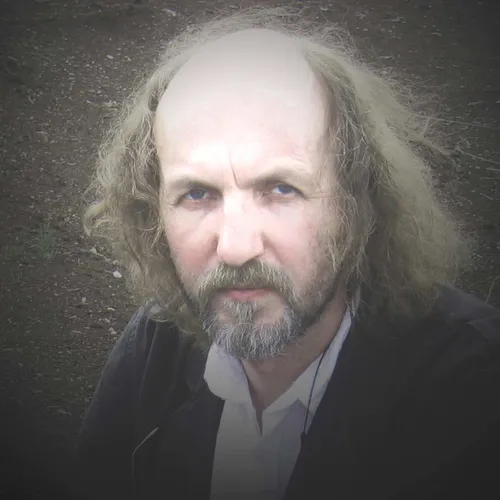
Author of numerous orchestral, vocal and chamber works incl. instrumental concertos, symphonies, cantatas and oratorios. Tulev received his musical education in Tallinn with Anti Marguste, Eino Tamberg, and Sven- David Sandström in Stockholm.
Tulev’s interest in both Western and Oriental oral musical traditions has led to his continued studies in the field. He has been a tutor and singer of Gregorian Chant, and participated in different vocal groups dedicated to early music including Scandicus, Vox Clamantis, but also Estonian Philharmonic Chamber Choir.
Since 2005 Tulev has been the head of the Department of Composition at the Estonian Academy of Music and Theater and since 2008 the professor composition.
Collaborations
Estonian National Symphony Orchestra, Tallinn Chamber Orchestra, Estonian National Opera and Ballet,
Radio Kamer Filharmonie Underholdnings Orkestret, Brno Symphony Orchestra, Athelas Sinfonietta, NYYD Ensemble, Nieuw Ensemble, Atlas Ensemble, Court-Circuit, Tallinn String Quartet, Ensemble Sarband, Hoca Nasreddin Trio, Arditti Quartet among others.
Also collaborated with Netherlands Chamber Choir, Estonian Philharmonic Chamber Choir, Ars Nova Copenhagen, Danish Radio Vocal Ensemble, Musicatreize, Latvian Radio Choir, The Crossing Choir and conductors Kaspars Putninš, Paul Hillier, Daniel Reuss, Tõnu Kaljuste, Martyn Brabbins, Donald Nally, Olari Elts, Risto Joost, Ed Spanjaard, Dennis Russell Davies.
Performances, publications
Tulev’s music has been performed at numerous festivals and venues, including NYYD Festival (Tallinn), Nuova Consonanza (Rome), Warsaw Autumn, Third Practice (Richmond, USA); Time of Music (Finland), Gaida (Vilnius), Arena (Riga), Oslo Church Music Festival, Vale of Glamorgan Festival (UK), Month of Modern (Philadelphia), Holland Festival, 20 Lieux sur la Mer (Marseilles), März Musik (Berlin), Ultima (Oslo), Noon to Midnight (LA) etc.
His works have been released on CD-s by Estonian Radio (be lost in the call, 2004) and Harmonia Mundi (Songs, 2008), Naxos (Magnificat, 2018) and Navona Records (Dawn, Almost Dawn 2025). Tulev’s scores are published by Theatre of Voices Edition.
Tulev’s most recent works include Fireflies vanish, there is nothing more (2024) for symphony orchestra; From the Dusk of the Leaves, Meanwhile, Peeks Void (2025) for flute and piano; Beloved, beloved for soprano, flute, piano and chamber orchestra (2025) on a text fragment by Inayat Khan.
Awards, residencies
Four of his Works Opus 21 for chamber orchestra (1996), Concerto for Violin and Orchestra (2002),
Flute concerto Deux ( 2006) and I said, who are you, he said – You (2010) have been selected among the ten recommended compositions at the International Rostrum of Composers in Paris and Barcelona.
In 2001 and 2003 Toivo Tulev was awarded the Annual Prize of the Endowment for Music of the Cultural Endowment of Estonia; in 2002 - Cultural Endowment’s Live and Shine grant; in 2006 - the Annual Music Prize of the Estonian Music Council. In 2016 Tulev was awarded the Prize of Lepo Sumera, in 2017 LHV modern composition prize Au-tasu.
Season 2004 -2005 Composer-in-Residence at the Estonian Philharmonic Chamber Choir, season 2007-2008 Composer-in-Residence at the Danish vocal ensemble Ars Nova.
In 2015 Tulev received Fulbright Scholarship for a research project Between the Audible and the Inaudible at Dartmouth University.
Der Herr ist mein getreuer Hirt II, pièce pour voix, violon, piano et cordes sur un texte de Kornelius Becker, a été créée le 20 janvier 2005 à Talinn par le Nargen Opera Choir, H. Traksmann (violon), J. Toots (piano) et les cordes de l’Orchestre de chambre de Talinn placés sous la direction de T. Kaljuste.
Comme dans Der Herr ist mein getreuer Hirt I, pour contretenor, violon et piano, Toivo Tulev choisit de maintenir un tempo très lent du début à la fin de la pièce renforçant ainsi le caractère sacré des deux oeuvres.
Durée : environ 7 minutes
Fireflies vanish, there is nothing more
(Les lucioles disparaissent, il n’y a rien plus rien)
Mon bon ami m'a demandé : « Quelle est la musique que tu écris ? ».
« Je ne sais pas, je ne sais vraiment pas », ai-je répondu.
Pourtant, après le passage de harpe final que j'ai entendu - Fireflies vanish, there is nothing more - je me suis souvenu du dernier haïku de Kaga no Chiyo :
L'eau claire est fraîche
Les lucioles disparaissent
Il n’y a plus rien
Toivo Tulev a composé une nouvelle pièce pour l'Orchestre Symphonique National d'Estonie. Le titre Fireflies vanish, there is nothing more a été donné par le compositeur après l'achèvement de la pièce. Ces lignes sont extraites d'un haïku de la poétesse japonaise du XVIIIème siècle Kaga no Chiyo. Tulev s'est également servi du même auteur dans des compositions antérieures.
Le début de l'œuvre est étonnamment rapide et vif - ce qui est inhabituel pour Tulev - mais d'autant plus adapté au tempérament de Olari Elts. Les quintolets rapides des bois font vibrer l'air.
Il ne s'agissait pas d'une musique d’atmosphére ou statique : elle était délibérée et active, progressant avec une clarté saisissante le long d'une échelle chromatique ascendante.
Tulev a déjà parlé de son admiration pour la poésie du mystique catholique Saint Jean de la Croix et a mentionné un de ses dessins représentant l'ascension et le voyage sur le mont Carmel.
Et que rencontre-t-on au sommet ? Qu'y trouve l'homme ou l'âme humaine ? Rien. «Nada, nada, nada, nada, nada, nada, y aún en el monte nada», écrivait Saint Jean de la Croix.
J'avais vécu quelque chose de similaire dans le final de Black Mirror de Tulev (2016, lauréat du Prix Au-tasu), lorsque le chanteur aux pieds nus du Trio Hoca Nasreddin, Nikolai Galen, a poussé un cri extatique vers les cieux.
Fireflies vanish, there is nothing more se termine cependant sur une note plus optimiste. Le dernier solo de harpe de Kaisa Helena Žigurs était tout sauf désolé - c'est plutôt comme si elle avait ajouté un point d'interrogation invisible à la fin du haïku de Chiyo : Tout se termine ?